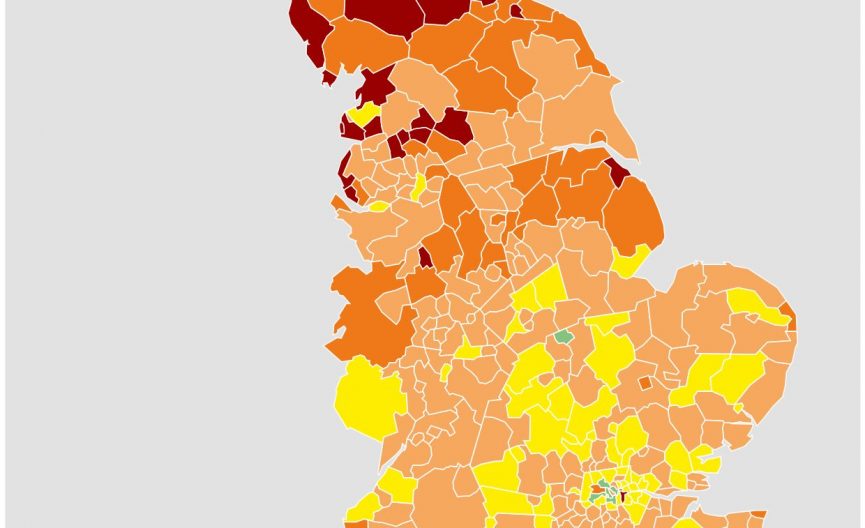Earlier this year, two news reports caught our eye. Firstly, that the number of vacant dwellings in England rose for the first time in a decade.
Secondly, a record number of people slept rough on London’s streets in 2018. These juxtaposed reports beg the question, if there are so many empty homes across the country, then why are people in need still having to sleep rough? Accordingly, we commissioned some research that pulled together the government’s figures for the total number of dwellings and vacant dwellings in every local authority in England from 2013 to 2017. In order to highlight the issue and see how it has developed, we created five heat maps showing the percentage of empty properties across the country.
How Many Empty Homes Are There In England?
There were 605,891 vacant homes in England in 2017, approximately a third of which are classed as ‘long-term vacants’ (properties that have been empty for over six months or more). In Autumn 2017, at least 4,500 people were sleeping rough on the streets of England. When you consider that figure in light of the massive number of vacant dwellings, it’s clear that only a tiny fraction of those empty homes would need to be identified and repurposed in order to improve lives across the country.
The maps reveal some worrying trends. In London, in Southwark and the City, the percentage of empty homes hit 4% for the first time in five years, meaning in 2017 there were 6196 empty dwellings in those two areas alone. In Camden, which borders our King’s Cross store, there were 3018 vacant dwellings, raising the percentage to 2.9%, the highest level since 2013.
The maps also reveal a significant division between the North and the South. While the percentage of vacant dwellings in many northern cities appears to be falling, the levels are consistently higher than in cities in the South. The Northwest has the highest levels in the country, with Burnley consistently returning the highest percentage of empty dwellings every year since 2013.
These figures are sobering. The dangers of sleeping rough are well established; living on the street can reduce your average life expectancy by up to 30 years. When you realise that over 440 homeless people died on the streets last year, it’s apparent that we are looking at a very real life and death issue.
Attic Self Storage And The Homeless
Unfortunately, at Attic Self Storage we regularly encounter people who could benefit from those vacant dwellings. It’s a sad fact that some of our customers come to us when life has thrown them a curveball. When I talk to people in the stores, I hear first-hand how a lack of affordable accommodation means that people have to abandon their homes without necessarily having a place to go.
We believe in doing our bit. Over the years we have worked with local councils and schools to help store the possessions of homeless households. We also take part in the Hearst Helps the Homeless initiative, when vets, doctors, dentists, counsellors and financial advisors volunteer their services to homeless people. We will be taking part again this year and hope to extend our role.
What We Can Do
Certainly, a lack of affordable housing is only one of a number of factors contributing to the homelessness issue. Resolving it will require different actors working across a number of fields, including education, employment and mental and physical welfare. However, by highlighting the issue of vacant housing and the potential lifeline it could offer the homeless, we hope to inspire some action from politicians, community leaders and landlords.
No one should ever be in a position where they don’t have a safe place to sleep at night. But for the right solutions to be adopted, the problem has to be better understood. We will be sending our research to a number of press outlets and I will be raising the issue with my MP and council leaders. We are a business that repurposes large industrial spaces to help alleviate some of the pressures people experience living in confined spaces. Maybe, by breathing new life into empty houses around the country, we can also help to alleviate the pressure on of society’s most vulnerable members.
To access high-resolution versions of the maps, as well as the accompanying statistics, click here.



